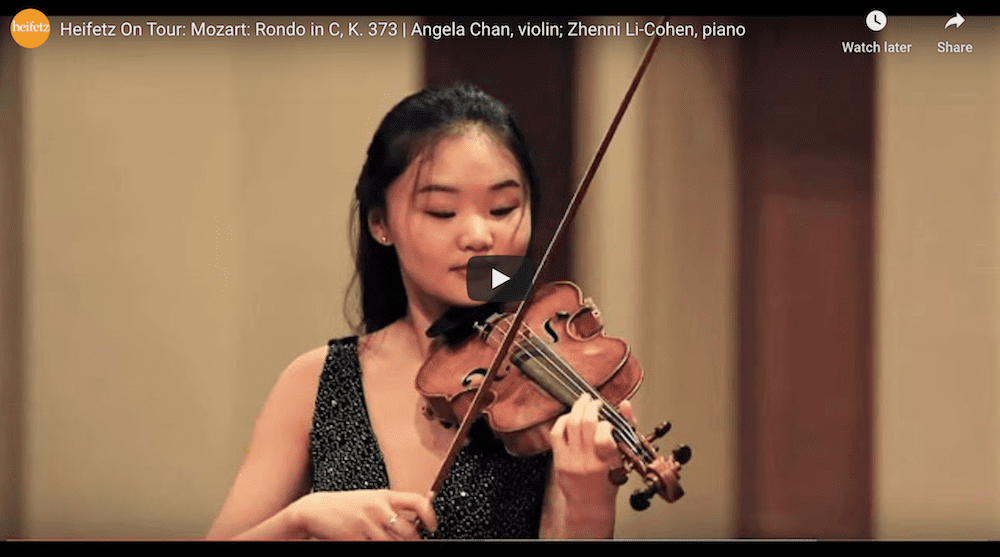Our latest Video of the Week is the epitome of Mozartian charm and elegance, all the more remarkable for its rough-and- tumble origins: a last-minute rewrite for a performer the composer could not stand.
The piece in question is Mozart’s Rondo in C major (K. 373). Michael Jameson tells the story in the All Music Guide:
“In common with his cycle of five violin concertos, it is most probable that Mozart (who was himself an accomplished violinist) wrote the Rondo in C major, K. 373, for the leader of the Archiepiscopal Court Orchestra in Salzburg, the celebrated Italian virtuoso Antonio Brunetti. Although the precise circumstances surrounding the composition of the work remain a matter of conjecture, it is highly likely that the Rondo came into being after problems were encountered with a concerto by another unknown composer, which was due to be played at the Court by Brunetti. Its final movement was found either to be musically lacking, or possibly missing entirely, and so Mozart wrote this charming piece as a replacement for its original finale, thus enabling the performance to go ahead.”

On April 11, 1781, shortly after completing this Rondo, Mozart wrote his father, “Praise be to God that at last that coarse and dirty Brunetti has left, who is a disgrace to his master and to the whole orchestra.” Read more of the backstory here.
On top of it all, Mozart made no secret of his loathing of Brunetti, whom he described as a “thoroughly ill-bred fellow.” The Italian violinist had scandalized the Salzburg court by marrying a local girl only after she had given birth to their child. Regardless, this Rondo is a seemingly effortless charmer, written, as Mozart specialist Misha Donat has observed, “in a spirit of smiling understatement.” Check out the near-perfect product, realized on the Heifetz stage by violinist Angela Chan, and pianist Zhenni Li-Cohen.


